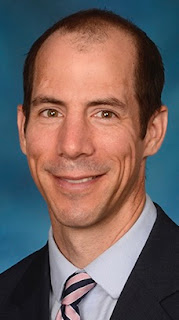A Covid lockdown in China could cause long delays in cancer imaging in the United States.
According to a story by Reed Abelson in yesterday's editions of The New York Times, a nationwide shortage of iodinated imaging agents needed for CT scans — a procedure "that relies on a special dye often injected into patients to better visualize their blood vessels, intestines and organs like the kidney and liver" — may be prompting "hospitals to ration these tests except in emergencies."
The problem was the closing of one specific Shanghai plant stemming from a lockdown aimed at quelling a coronavirus outbreak, the latest example of the U.S.'s "vulnerability to disruptions in the global supply chain."
Abelson's article goes on to say that "as many as half the nation's hospitals are affected by the shortage."
Some 50 million exams with contrast agents are performed annually in the United States.
The Times piece says that while noting that "someone with a stroke or heart attack" also may not be able to get an angiogram because of the dye shortage, Dr. Robert Califf, U.S. Food and Drug Administration commissioner, told a Senate committee the situation is "just unbelievable."
The article additionally quotes Dr. Jamie McCarthy, chief physician executive at Memorial Hermann Health System, a large Houston hospital group, as saying, "The hits just keep on coming in this pandemic in the supply chain."
 |
| Dr. William Dahut |
Some patients, the Times piece contends, "may be able to have an MRI in place of a CT scan or have the exam performed without contrast. Still, for many patients, "the shortage leaves them in limbo."
Dr. Shikha Jain, a Chicago oncologist, says the shortage and resultant delays are "definitely causing more stress for patients."
Dr. Matthew Davenport, vice chair of the commission on quality and safety for the American College of Radiology, likened the situation to the current scarcity of baby formula.
More information about treatment problems can be found in "Rollercoaster: How a man can survive his partner's breast cancer," a VitalityPress book that I, Woody Weingarten, aimed at male caregivers.


